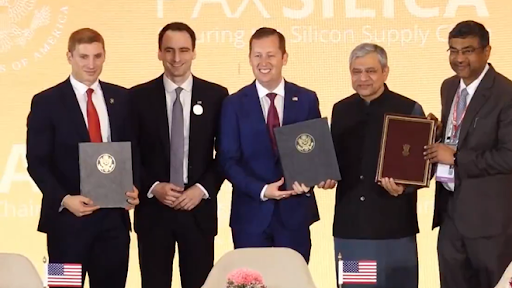





Copyright infringement not intended
Picture Courtesy: https://www.thehindu.com/opinion/lead/the-world-needs-blue-helmets-who-act-as-blue-helmets/article68784163.ece
The World Needs Blue Helmets to Act With Purpose, Not Remain Passive.
The United Nations, once a beacon of hope with its comprehensive peacekeeping operations, now risks losing its relevance. While the UN holds the mandate and the manpower to enforce peace, it has been reduced to a mere spectator in some of the most devastating conflicts today, this "bystander" status is eroding the credibility of an institution.
The United Nations peacekeeping Forces, commonly known as "Blue Helmets" are a cornerstone of global peace efforts, they are named after their unique helmets, these forces are deployed to help countries transition from conflict to peace.
The first mission was launched in 1948 when the UN deployed military observers to monitor the Armistice Agreement in the Middle East between Israel and Arab countries.
The UN Security Council authorizes peacekeeping missions through a resolution.
|
Formation and Deployment |
Consent and Authorization, Deployment requires consent from conflicting parties and UN Security Council authorization. Ad Hoc Basis, The UN doesn't have a standing army, so peacekeeping missions are formed on an ad hoc basis with personnel from member states. |
|
Core Principles |
Consent of the Parties, Operations require consent from the main parties involved in the conflict. Impartiality, Peacekeepers must remain neutral. Non-use of Force, Force is used only in self-defense or to protect the mandate. |
|
Roles and Responsibilities |
Their tasks include monitoring ceasefires, protecting civilians, disarming ex-combatants, supporting the organization of elections, and promoting human rights and the rule of law. |
|
Personnel and Contributions |
Includes military personnel, police officers, and civilian experts from over 120 countries. As of 2024, there are approximately 81,820 active personnel involved in peacekeeping missions. Bangladesh contributes the most of any country. Nepal contributed the second most personnel, followed by India. |
The UN's Charter, especially Chapters VI, VII, and VIII, promises the means to enforce peace, deploying military and police forces where peace is threatened. But promises on paper mean nothing if the action falls short.
Cambodia, Mozambique, Sierra Leone—places where war once raged—have seen peace restored largely due to the efforts of the peacekeeping forces. However, Rwanda and Bosnia remain examples of failure.
In both cases, the UN had peacekeeping forces on the ground, they stood against the atrocities, however, this pattern has not entirely shifted, even though, in later missions like those in Sierra Leone, Timor Leste, and the Congo, civilian protection took center stage.
In Ukraine, the conflict rages on. In Gaza and Israel, the bloodshed continues. With 100,000 military and police forces under its command, why does the UN remain on the sidelines?
In theory, these forces are ready, stationed in places like Italy’s logistics hub in Brindisi. But willingness indicates little when the call to act never comes. The current global crises make one thing clear: having soldiers without action is pointless. What good is a force if it doesn’t stop bloodshed?
As wars escalate, one can feel this is a missed opportunity for the UN to stand tall. Extraordinary conflicts demand extraordinary responses, yet the UN seems stuck in a pattern of hesitation.
Nations contributing to peacekeeping forces consent to protect civilians. Yet, without decisive leadership, those forces merely collect their pay and await rotation, wasting time and potential.
The UN’s passivity highlights a structural flaw: the Security Council’s veto power. The P5, originally intended to stabilize global peace efforts, frequently acts as a barrier to meaningful intervention.
The Security Council must expand, including voices like India and South Africa. These nations can represent the global South and Africa.
The veto must be limited. When urgent action is needed, peace operations should not be held hostage by a single vote. Instead, a majority decision among P7 members should determine the UN’s course of action.
Must Read Articles:
Source:
|
PRACTICE QUESTION Q.Consider the following statements in the context of the UN Peacekeeping force: 1. UN peacekeepers can only be deployed with the consent of the conflicting parties. 2. The UN has a standing army that it deploys for peacekeeping missions. 3. The General Assembly has the power to deploy peacekeeping missions. Which of the above statements are incorrect? A) 1 and 2 only B) 2 and 3 only C) 1 and 3 only D) 1, 2 and 3 Answer: B Explanation: Statement 1 is correct: Consent of the conflicting parties is important for the legitimacy and effectiveness of peacekeeping operations, without the consent, peacekeepers may face significant resistance and challenges in fulfilling their mandate. Statement 2 is incorrect: The UN has no standing army, it negotiates with member states to provide the necessary personnel and resources for each mission. Statement 3 is incorrect: The UN Security Council, composed of 15 member states (including five permanent members with veto power) is responsible for maintaining international peace and security. It has the authority to establish and mandate peacekeeping operations. |




© 2026 iasgyan. All right reserved